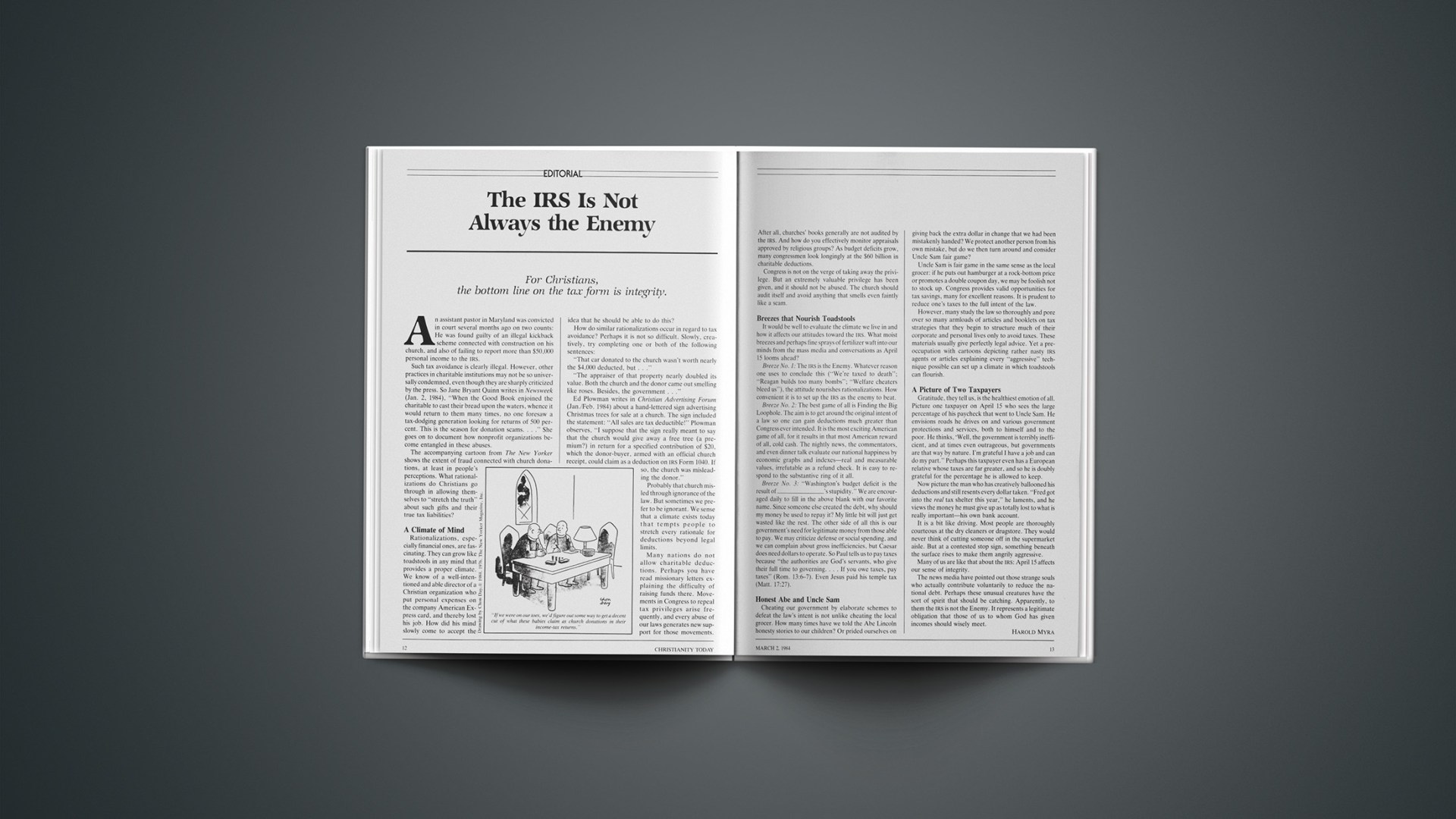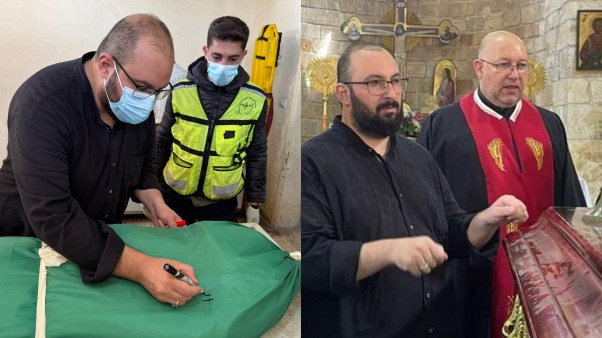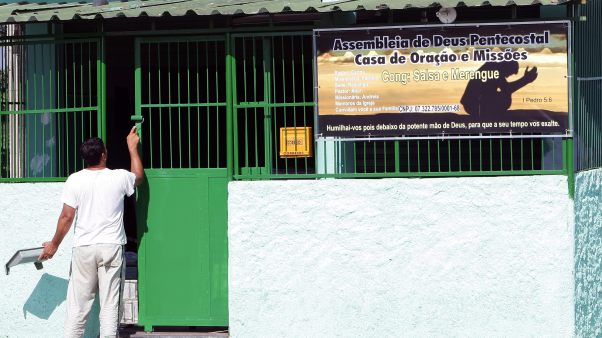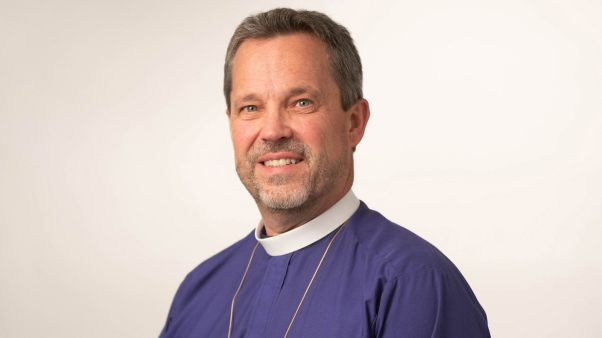A Climate Of Mind
Rationalizations, especially financial ones, are fascinating. They can grow like toadstools in any mind that provides a proper climate. We know of a well-intentioned and able director of a Christian organization who put personal expenses on the company American Express card, and thereby lost his job. How did his mind slowly come to accept the idea that he should be able to do this?
How do similar rationalizations occur in regard to tax avoidance? Perhaps it is not so difficult. Slowly, creatively, try completing one or both of the following sentences:
“That car donated to the church wasn’t worth nearly the $4,000 deducted, but …”
“The appraiser of that property nearly doubled its value. Both the church and the donor came out smelling like roses. Besides, the government …”
Ed Plowman writes in Christian Advertising Forum (Jan./Feb. 1984) about a hand-lettered sign advertising Christmas trees for sale at a church. The sign included the statement: “All sales are tax deductible!” Plowman observes, “I suppose that the sign really meant to say that the church would give away a free tree (a premium?) in return for a specified contribution of $20, which the donor-buyer, armed with an official church receipt, could claim as a deduction on IRS Form 1040. If so, the church was misleading the donor.”
Probably that church misled through ignorance of the law. But sometimes we prefer to be ignorant. We sense that a climate exists today that tempts people to stretch every rationale for deductions beyond legal limits.
Many nations do not allow charitable deductions. Perhaps you have read missionary letters explaining the difficulty of raising funds there. Movements in Congress to repeal tax privileges arise frequently, and every abuse of our laws generates new support for those movements. After all, churches’ books generally are not audited by the IRS. And how do you effectively monitor appraisals approved by religious groups? As budget deficits grow, many congressmen look longingly at the $60 billion in charitable deductions.
Congress is not on the verge of taking away the privilege. But an extremely valuable privilege has been given, and it should not be abused. The church should audit itself and avoid anything that smells even faintly like a scam.
Breezes That Nourish Toadstools
It would be well to evaluate the climate we live in and how it affects our attitudes toward the IRS. What moist breezes and perhaps fine sprays of fertilizer waft into our minds from the mass media and conversations as April 15 looms ahead?
Breeze No. 1: The IRS is the Enemy. Whatever reason one uses to conclude this (“We’re taxed to death”; “Reagan builds too many bombs”; “Welfare cheaters bleed us”), the attitude nourishes rationalizations. How convenient it is to set up the IRS as the enemy to beat.
Breeze No. 2: The best game of all is Finding the Big Loophole. The aim is to get around the original intent of a law so one can gain deductions much greater than Congress ever intended. It is the most exciting American game of all, for it results in that most American reward of all, cold cash. The nightly news, the commentators, and even dinner talk evaluate our national happiness by economic graphs and indexes—real and measurable values, irrefutable as a refund check. It is easy to respond to the substantive ring of it all.
Breeze No. 3: “Washington’s budget deficit is the result of ________’s stupidity.” We are encouraged daily to fill in the above blank with our favorite name. Since someone else created the debt, why should my money be used to repay it? My little bit will just get wasted like the rest. The other side of all this is our government’s need for legitimate money from those able to pay. We may criticize defense or social spending, and we can complain about gross inefficiencies, but Caesar does need dollars to operate. So Paul tells us to pay taxes because “the authorities are God’s servants, who give their full time to governing.… If you owe taxes, pay taxes” (Rom. 13:6–7). Even Jesus paid his temple tax (Matt. 17:27).
Honest Abe And Uncle Sam
Cheating our government by elaborate schemes to defeat the law’s intent is not unlike cheating the local grocer. How many times have we told the Abe Lincoln honesty stories to our children? Or prided ourselves on giving back the extra dollar in change that we had been mistakenly handed? We protect another person from his own mistake, but do we then turn around and consider Uncle Sam fair game?
Uncle Sam is fair game in the same sense as the local grocer: if he puts out hamburger at a rock-bottom price or promotes a double coupon day, we may be foolish not to stock up. Congress provides valid opportunities for tax savings, many for excellent reasons. It is prudent to reduce one’s taxes to the full intent of the law.
However, many study the law so thoroughly and pore over so many armloads of articles and booklets on tax strategies that they begin to structure much of their corporate and personal lives only to avoid taxes. These materials usually give perfectly legal advice. Yet a preoccupation with cartoons depicting rather nasty IRS agents or articles explaining every “aggressive” technique possible can set up a climate in which toadstools can flourish.
A Picture Of Two Taxpayers
Gratitude, they tell us, is the healthiest emotion of all. Picture one taxpayer on April 15 who sees the large percentage of his paycheck that went to Uncle Sam. He envisions roads he drives on and various government protections and services, both to himself and to the poor. He thinks, ‘Well, the government is terribly inefficient, and at times even outrageous, but governments are that way by nature. I’m grateful I have a job and can do my part.” Perhaps this taxpayer even has a European relative whose taxes are far greater, and so he is doubly grateful for the percentage he is allowed to keep.
Now picture the man who has creatively ballooned his deductions and still resents every dollar taken. “Fred got into the real tax shelter this year,” he laments, and he views the money he must give up as totally lost to what is really important—his own bank account.
It is a bit like driving. Most people are thoroughly courteous at the dry cleaners or drugstore. They would never think of cutting someone off in the supermarket aisle. But at a contested stop sign, something beneath the surface rises to make them angrily aggressive.
Many of us are like that about the IRS: April 15 affects our sense of integrity.
The news media have pointed out those strange souls who actually contribute voluntarily to reduce the national debt. Perhaps these unusual creatures have the sort of spirit that should be catching. Apparently, to them the IRS is not the Enemy. It represents a legitimate obligation that those of us to whom God has given incomes should wisely meet.
HAROLD MYRA
As more and more executions make the news, here are the questions Christians need to face
At 8:30 P.M. ON SEPTEMBER 5, 1983, the small Communion service began, five men passing the bread and the cup in the state penitentiary in Parchman, Mississippi. A few hours later, shortly after midnight, one of the participants, Jimmy Lee Gray, entered the gas chamber and was executed for the rape and murder of a three-year-old girl six years earlier.
Another participant in the Communion, Joe Ingle, recalls, “We got to the end of the service, and we stood holding hands, going around the circle, praying.” The men sweltered in the small visiting room. Ingle’s hands were damp, and sweat dripped from his face.
“I couldn’t think of anything to say. My soul was parched,” said Ingle, a soft-spoken United Church of Christ minister working with the Southern Coalition on Jails and Prisons. “They were getting ready to kill Jimmy.”
Gray, 32, became a Christian in 1977 while awaiting trial. Says Ingle, “As Jimmy put it, ‘I was waiting for a lightning bolt of justice and was hit by a lightning bolt of mercy.’ And from that day on, he lived out his Christian commitment.”
When it was his turn to pray, Ingle, who has spent time with most of the prisoners executed in the last seven years, couldn’t think of anything to say. So he read Romans 8:33–39 as his prayer: “Who shall bring any charge against God’s elect? It is God who justifies; who is to condemn?… For I am sure that neither death, nor life … will be able to separate us from the love of God in Christ Jesus our Lord.”
“Somehow the Spirit spoke through that prayer in a way that reached all of us around the circle,” said Ingle. “Then they took Jimmy out and put him to death.
“Any man who can hold my hand, share Communion with me, and participate in the love of God—I don’t care what he’s done—he’s forgiven, reconciled. Yes, people will do horrible things in their sinful state. The question is: How do we respond when they repent?
“Killing them is not the answer.”
Los Angeles police officer Robert Vernon was on patrol when he heard over his radio that a robbery was in progress. Since he was closest to the scene, he responded.
When he arrived at the small “mom and pop” liquor store, the robbers had already fled, but inside he found the owner and his wife tightly bound with wire—and hysterical.
Freeing and trying to calm them, Vernon gradually got their story.
After taking money from the cash box, the two robbers, armed with handguns, had tied the couple to two wooden chairs, and for 15 minutes debated whether or not to kill them.
One man wanted to eliminate them as possible witnesses.
The other insisted, “I’m willing to risk prison for this, but I’m not going to the Green Room [California’s gas chamber].” Eventually he convinced his partner, and the two ran off shortly before Vernon arrived, leaving their victims shaken. But alive.
Robert Vernon is no longer a beat cop; he is now assistant chief of the Los Angeles Police Department. But that experience from his early days on the force has stuck in his memory.
“If that robbery happened today, the owner and his wife would probably be killed,” said Vernon. “In the mid-1950s, when convicted murderers were being executed in significant numbers, the threat of death was a deterrent. For two decades, the number of homicides each year in L. A. hovered around 450. Three years ago it suddenly jumped, and now we have nearly 1,100 homicides each year in the Los Angeles city limits. That’s due, at least in part, to the lack of capital punishment.”
As an example, he cites the “Bob’s Big Boy” killings two years ago in Los Angeles. Two men and a woman with shotguns entered the restaurant and demanded everyone turn over watches, billfolds, and jewelry. The dozen people in the restaurant cooperated, and quietly handed over their valuables. The gunmen, however, herded them into a refrigerated back room, made them lie on the floor, and calmly shot each of them before making their escape. Four of the victims died.
“When we ask suspects why they shoot their robbery victims,” said Vernon, “they’ll often reply, ‘What did I have to lose?’ If they’re caught, they know the punishment is the same whether or not they’ve killed anyone. They can be sentenced to ‘life without possibility of parole,’ but in actuality, they’ll get a parole hearing within seven years.
“A death penalty merely on the books doesn’t deter killings—only executions deter murders.”
Christians on both sides of the capital punishment issue agree on one point: they don’t like the way the death penalty is currently administered.
Abolitionists, including many evangelicals involved in prison ministries, oppose the death penalty because they believe it is unfairly and arbitrarily administered. They feel that proceeding with the scheduled executions of the nearly 1,300 current death-row residents is a tragedy.
Proponents insist that capital punishment is necessary for an orderly, stable society, though many feel the current legal system allows so many to avoid the death penalty that it has lost much of its value as a deterrent to crime.
The deterrent value is a hotly debated point. Statistics can be marshaled on both sides. Deterrence, however, requires would-be murderers to reckon with the probable costs of their actions, a rational assessment unlikely to be made by those drunk, high on drugs, or in fits of anger. And the United States seems unwilling to execute in numbers sufficient to impress calculating killers. Even in the peak year of 1933, the 199 who were executed represented a scant 2 percent of all murderers convicted.
The United States is the only Western industrial nation still practicing the death penalty in peacetime. Canada abolished it in 1976, France did so in 1981, and England last summer refused an effort to resume hanging. Abolitionists point out that the death penalty puts the U.S. in company with the Soviet Union, South Africa, Saudi Arabia, Japan, and Iran.
Public opinion in the U.S., however, has changed dramatically in the last 20 years, and momentum now seems to be on the pro-death-penalty side. In 1966, one poll discovered 47 percent against and 42 percent for the death penalty. In a 1982 Gallup poll, 72 percent were in favor of capital punishment for certain types of first degree murder.
The legal picture changed in 1967 when a five-year moratorium on executions was declared. In the famous Furman v. Georgia decision of 1972, the U.S. Supreme Court declared the death penalty, as then administered, unconstitutional. But in 1976, after several states had rewritten their laws, the Court decided the new laws sufficiently prevented inequities. On January 16, 1977, Gary Gilmore became the first person executed in 11 years. A dozen have been executed since, with steadily increasing numbers likely to follow.
Earlier this year, the Supreme Court ruled in the case of Robert Alton Harris, whose guilt was not at issue.
After robbing a San Diego bank six years ago, Harris and his brother needed a getaway vehicle. At a fast-food restaurant, they forced their way into a car occupied by two teenage boys, drove them to a nearby lake, and killed them. The California attorney general says Harris “took special relish in firing a final and unnecessary bullet into one boy’s head just to see what the effect would be.” Harris then calmly ate the boy’s hamburger.
What the Supreme Court had to decide, however, was whether Harris should die for his crime when other California murderers commit similar crimes and are not executed. By ruling against Harris and “proportionality reviews,” the Court’s decision will likely lead to more executions.
In the face of these legal complexities, Christians struggle to determine what justice is.
Biblical Ambiguity
Proponents of the death penalty point primarily to two Bible passages: Genesis 9:6 (which states that “whoever sheds the blood of man, by man shall his blood be shed; for in the image of God has God made man” NIV), and Romans 13:4 (which describes God as granting government the right of “the sword” in dealing with evildoers). These suggest a timeless principle, they say, that allows the state to execute murderers.
They point to Achan in Joshua 7 and Ananias and Sapphira in Acts 5 as examples of God endorsing the death penalty in both Old and New Testaments.
Abolitionists argue that Genesis 9:6 cannot be applied today and, indeed, it was not even applied consistently in the Bible. God, for instance, gave Cain a “life sentence” rather than death for the murder of Abel. Moses was a murderer and Paul an accessory. Manasseh and David were both responsible for capital crimes, but God chose to extend mercy. They also suggest that “the sword” of Romans 13 permits force in maintaining order but does not demand the death penalty.
In addition, opponents of capital punishment such as Charles Colson point out that the Bible stipulates how the death penalty is to be meted out. Numbers 35:29–30, for instance, requires two eyewitnesses for any conviction—a condition unmet in today’s courts, where circumstantial evidence plays an important role. Deuteronomy 17:7 also instructs the witnesses to be involved in the execution—certainly not the case with today’s electric chairs and lethal injections.
What are we to make of the biblical evidence? As an extensive 1979 report by the Christian Reformed Church concluded, “The Scriptures lay no mandate on modern states to exercise capital punishment” but they “do permit modern states to inflict capital punishment.” The carefully worded document closes, “According to the spirit of Scripture, capital punishment is prudently exercised only under extreme conditions and not as a general rule.”
Must Justice Be Fair?
Deuteronomy 16:19 instructs judges not to “pervert justice or show partiality.” Lynn Buzzard, executive director of the Christian Legal Society, opposes capital punishment because “in this country we’re unable to administrate the death penalty fairly.”
What is unfair about it? Opponents cite several factors:
1. Prosecutors must decide in which cases to seek the death penalty. An important factor is whether they feel the case will trigger the jury’s sense of outrage. This subjectivity leads to racial discrimination, say opponents, as prosecutors choose cases where the victims are almost always white. Murderers of blacks and other races usually get lesser sentences.
Sometimes individuals involved in the same crime will get totally different sentences. Charles Brooks was killed by lethal injection on December 7, 1982, in Huntsville, Texas, for the murder of a garage attendant during a robbery. His accomplice, who may actually have pulled the trigger, could be eligible for parole within two years because of a technicality in the jury-selection process.
Occasionally, prosecutors grant immunity to one partner to persuade him to testify against the other. Unfair? Perhaps, though death-penalty advocates call it a necessary evil.
“It is disturbing,” says Judge Herbert A. Swanson of the Washington State Court of Appeals. “But if prosecutors didn’t have the discretion to offer some [a chance] to turn state’s evidence, a great many crimes would go unsolved. And normally, they try to select the least culpable person.”
2. Sentencing varies widely from state to state. The South has been dubbed “the death belt” since 80 percent of death-row residents are in Southern states, a full 36 percent in Florida, Georgia, and Texas alone.
Sentencing even varies within a state, and for this reason, Harry G. Fogle, a Florida circuit court judge, opposes the death penalty, though he has handed down death sentences twice.
“John Spenkelink shot his homosexual partner in the back of the head and got the electric chair,” says Fogle. “But I know another case where a young girl, her mother, and grandmother were raped and brutally beaten to death with a hammer, and the defendant got life imprisonment. That’s arbitrary and unfair.”
3. The poor can’t afford the same legal defense as the rich. “Having a court appointed lawyer can get you killed in this country,” says Joe Ingle of Southern Prison Ministries, pointing out that public defenders are overburdened and don’t have the time or resources to handle the complexities of capital cases.
Judge Herbert Swanson disagrees. “Public defenders are just as well trained and well funded as state prosecutors,” he said. “In addition, once the case reaches the appeals stage, defendants are assigned an appellate defender, a specialist in appeals.” Nearly 70 percent of death sentences are overturned in the appeals process, according to the NAACP Legal Defense Fund. Nevertheless, death-row inmates are disproportionately poor.
At about the time drifter John Spenkelink was executed for murder in Florida, Dan White killed San Francisco Mayor George Moscone and another city official in their offices. White, a city supervisor, was sentenced to seven years and eight months in prison for the double homicide. He was released earlier this year after serving five years of the sentence.
Proponents of capital punishment counter that the answer to these inequities is not to abolish the death penalty but to clean up the system.
“In California, we’re beginning to define the ‘unusual circumstances’ necessary for a death sentence—such things as lying in wait or multiple murders,” says Robert Vernon. “Just because the system is unfair and some things slip through the cracks doesn’t mean you do away with the process. We can’t cite every speeder, but that doesn’t mean we don’t enforce the law when we can.”
Vernon suggests that a presidential commission, similar to the one assigned to study drinking and driving, be appointed to suggest ways to apply the death penalty fairly.
Reason Versus Reaction
Applying the death penalty often becomes a battle between high-minded reason and visceral reaction. When particularly gruesome crimes are committed, people react with fear, disgust, and the feeling that the culprit doesn’t deserve to live.
In southern Cook County, Illinois, on the night of June 3, 1973, a woman driving on Interstate 57 was forced off the road by a car carrying four men. According to Time magazine, one of them pointed a shotgun at her, ordered her to strip and climb through a barbed-wire fence beside the road. As she begged for her life, the man thrust the gun into her vagina and fired. After watching her agonies for several minutes, he finished her off with a blast to the throat.
An hour later, another car was stopped and the man and woman inside ordered to lie on the pavement. The couple pleaded for mercy, saying they were engaged to be married in six months. The man with the gun said, “Kiss your last kiss,” then fatally shot both of them in the back.
Henry Brisbon, Jr., was convicted of the “I–57” murders and sentenced to 1,000 to 3,000 years in prison. In less than a year, Brisbon killed again, stabbing a fellow inmate with the sharpened handle of a spoon. This time he was sentenced to death. Proponents of the death penalty say he deserves it: death is the only appropriate and just response.
Christian abolitionists argue that only God can adequately judge Henry Brisbon for his crimes, and that he, like each of us, is already under the death penalty—imposed by God while evicting Adam from Eden. Capital punishment, they say, prematurely ends a person’s life in the interest of vengeance, which belongs to God alone.
“Some people ought to be locked up and the door welded shut,” says Bill Groseclose, a death-row resident in the Tennessee State Penitentiary in Nashville. “Some people aren’t fit to live in society, and they should be set aside until God sees fit to take them home. That’s God’s prerogative, not ours.
“My most significant spiritual experience in my seven years here has been seeing three fellow inmates come to Christ. To a minister on the street, that might be slow business, but to me, that’s made my seven years here worthwhile. No one is beyond the reach of God’s love.”
When In Doubt …
Perhaps the most serious charge against the death penalty is that it is irreversible and an innocent person could die. “In my career,” says Florida Judge Harry Fogle, “I’ve seen four people convicted of first-degree murder, sentenced to the chair, and later saved by confessions of those who actually committed the crime. The idea that human beings can decide who should live and die is specious. In the last 100 years we’ve had 100 mistakes in capital cases. One is too many, and we’ve averaged one a year! The system doesn’t ferret out all the errors.”
He is countered by William Ellis, a Christian Legal Society board member who, as a Washington state representative, cosponsored successful capital punishment legislation. Ellis says, “The death penalty is terrible and permanent, but you must balance the prospect of a safe, peaceful society against the occasional mistake. Our safeguard—the appeals system—helps. But ask the public which they prefer, and they’re voting on the side of the death penalty.”
Last December, Joseph Cardinal Bernardin of Chicago spoke of the prolife issues as “a seamless garment” that included opposing both abortion and capital punishment. Urging a “comprehensive and consistent ethic of life,” he admitted the state has the right to employ capital punishment, but he argued that the state shouldn’t exercise that right. “More humane methods of defending the society exist and should be used,” he said.
While many see a difference between the unborn and convicted criminals, at least one argument against abortion probably applies to capital punishment as well: Doubt should always be resolved on the side of life.
The Foreseeable Future
What is the future of the death penalty?
Given the recent record of the Supreme Court, which has tended to uphold capital punishment laws, it seems unlikely the death penalty will be abolished in the United States anytime soon.
Proponents will continue to push for more frequent death sentences, arguing that convicted killers have forfeited their right to life. Opponents will continue exercising every possible appeal to prolong the lives of those on death row, and pointing out the inequities of the system. Juries and judges will continue having to make life-and-death decisions.
As anyone who has served jury duty can attest, passing judgment is never a happy exercise. Justice, even when guilt is beyond doubt, can never fully reimburse a wrong.
Christians believe in a perfect Judge who will one day administer absolute justice, but in the meantime, like it or not, he has granted the responsibility to us.










